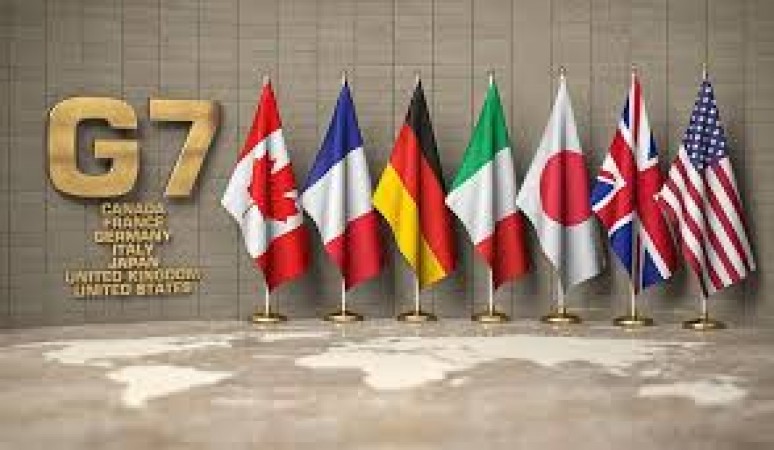
The G7 committee is working towards enhancing the export controls on materials, technology and research that could be used to develop weapons of mass destruction and their means of delivery. Arms control, in particular the prevention of the proliferation of weapons of mass destruction, has been one of the G7’s core subjects since its creation in 1975.
Nuclear proliferation means the acquisition of nuclear weapons by nations or terrorist organisations. This issue has gotten the attention when India and Pakistan has exploded several nuclear devices back in 1998, May.
The seven permanent members of G7 are Canada, France, US, Japan, Germany, Italy, UK. From 1975 to 2019, the G7 made 349 collective, politically binding commitments on arms control, as identified by the G7 Research Group. This placed arms control in fifth place among all issue areas.
The Treaty on the Non-proliferation of nuclear weapons, or Nuclear Non-Proliferation Treaty (NPT), was concluded by the United States, the Soviet Union, the United Kingdom, France, and China in 1968. The objectives of the NPT were thus twofold: to prevent the spread of nuclear weapons without impeding the development of peaceful uses of nuclear technology and to promote global disarmament.
Non-Proliferation Treaty (NPT) had been successful in deterring the spread of nuclear weapons; however in near future if proliferation has to be avoided every nation should be truly dedicated towards the non-proliferation of the nuclear weapons.
Nuclear weapons produce ionizing radiation, which kills or sickens those exposed, contaminates the environment, and has long-term health consequences, including cancer and genetic damage. Hiroshima and Nagasaki are still recovering from the nuclear attack which has also left the new generation with its side effects.
Countries that have signed the Non-Proliferation Treaty agreed to have the International Atomic Energy Agency monitor their nuclear power plants and related facilities. These inspections are designed to prevent spent fuel rods and other technologies from being diverted for nuclear weapons production. The breakup of the Soviet Union has raised fears that fuel from nuclear reactors and possibly nuclear weapons may be sold to countries wanting nuclear weapons.
India opposes the discriminative disarmament policy and argues for the complete ban of nuclear weapons because of which it hasn’t signed the NPT. India is among those one of five countries which either did not sign the NPT or signed but withdrew. These five countries include Pakistan, Israel, North Korea, India and South Sudan.
Acquisition of nuclear weapons by developing countries such as India (1974), Pakistan (1998), and North Korea (2006) raised new challenges. Under the Lisbon Protocol (1992), Belarus, Kazakhstan, and Ukraine, as well as Russia and the United States, became parties to the START (Strategic Arms reduction Talks) treaty between the United States and the former Soviet Union, and the former Soviet republics agreed to destroy or transfer to Russia all strategic nuclear warheads in their territories.
25 March 2020, G7 foreign ministers concluded that Iran and North Korea remained two primary flashpoints. Countries that have signed the Non-Proliferation Treaty agreed to have the International Atomic Energy Agency monitor their nuclear power plants and related facilities.
In the 48th G7 summit European Union representative Ursula von der Leyen, president of the European commission and Charles Michel, President of the European Council became the member of the G7 as “non-enumerated member”. And the invited guest countries are Argentina, India, Indonesia, Senegal, South Africa, and Ukraine.
Is China's era of rapid growth truly over?
Tymoshenko submits his resignation as the deputy head of the Ukrainian presidential office
Jacinda Ardern makes her final appearance as the head of New Zealand